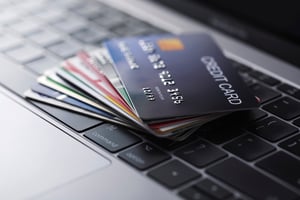
If a debtor chooses to keep a particular credit card during a bankruptcy, the best way to accomplish this is to maintain a zero balance on the credit card at the time the case is filed. If the credit card has a zero balance at the time of filing for bankruptcy, the court will not send the credit card company notice of the debtor’s bankruptcy. It is important to be aware that, even if a credit card company was not listed as a creditor in a debtor’s schedules, the credit card company will still usually find out about the bankruptcy through credit bureaus or reporting services. With that in mind, it may be better for a debtor to still include the credit card company as a creditor in the schedules, and expect that the debt will be discharged and the card will be closed. Another avenue to keep a credit card is through reaffirmation. If a debtor reaffirms a credit card after their bankruptcy case is filed, the debtor will be personally liable on the debt once more. Through reaffirmation, a new contract with the credit card company is signed, holding the debtor personally liable on the debt again. Could a debtor keep a business credit card, as opposed to a personal credit card, that was used for work related expenses? If the debtor is an authorized user on the business credit card, then the business credit card need not be listed in the schedules, since the account is not in the debtor’s name. If the debtor is on the business credit card account and there is a balance on the credit card, then the credit card must be listed on the schedules, even though it is used for work related expenses and not personal expenses. This same principle applies to personal credit cards if the debtor is merely an authorized user. If a debtor is an authorized user on a credit card, the credit card does not need to be listed in the schedules when the debtor is filing for bankruptcy. The rationale behind this is that authorized users are not liable for the debt on the credit card; they merely have permission to use the account holder’s credit card.
CALL NOW FOR A FREE STRATEGY SESSION FROM A MN BANKRUPTCY LAWYER AT LIFEBACK LAW FIRM
To learn more about how your creditors will be listed in your bankruptcy schedules when filing for bankruptcy, come see us at our new location in St. Paul, Minnesota, or at our website at LifeBackLaw.com!


